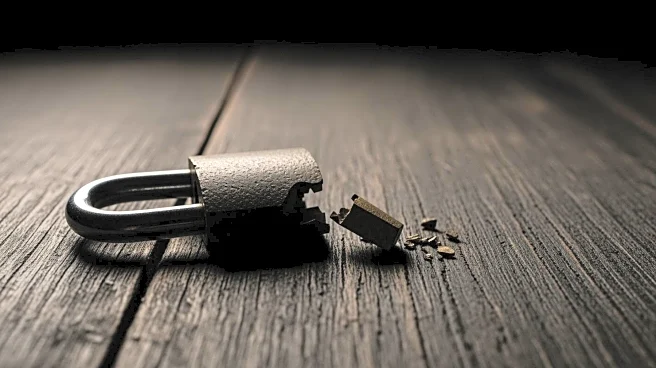What's Happening?
Peru's capital, Lima, is experiencing increased military and police presence following the declaration of a state of emergency by President José Jerí. This measure, which began on October 22, 2025, aims
to address the escalating crime rates in the country. The decree suspends several constitutional rights, including freedom of assembly and protest, and imposes restrictions such as banning two adults from riding on a motorcycle together. The state of emergency follows a violent protest demanding President Jerí's resignation, which resulted in one protester being killed by police and another suffering a severe skull fracture. The previous administration under President Dina Boluarte had also declared a state of emergency earlier in the year, but it was criticized for its ineffectiveness in curbing crime.
Why It's Important?
The state of emergency in Peru highlights the ongoing struggle to control rising crime rates, which have seen a significant increase in recent years. Homicides have tripled from 676 cases in 2017 to 2,082 in 2024, and extortion complaints have surged from 2,305 in 2020 to 21,746 last year. The measures taken by the government are crucial for restoring public safety and confidence, especially among working-class citizens who are most affected by these crimes. However, there is skepticism about the effectiveness of such measures, as previous attempts have not yielded significant results. The situation in Peru could have broader implications for regional stability and governance in South America.
What's Next?
The effectiveness of the state of emergency will be closely monitored by both the Peruvian public and international observers. If the measures fail to reduce crime, there could be increased pressure on President Jerí to find alternative solutions or face further protests. The government may need to consider additional reforms or seek international assistance to address the root causes of crime. The response from civil society and human rights organizations will also be critical, as they may challenge the suspension of constitutional rights.
Beyond the Headlines
The declaration of a state of emergency raises important questions about the balance between security and civil liberties. The suspension of rights such as freedom of assembly and protest could lead to further unrest if perceived as an overreach by the government. Additionally, the focus on military and police presence may not address underlying issues such as poverty and lack of opportunities, which contribute to crime. Long-term solutions may require comprehensive social and economic reforms.









